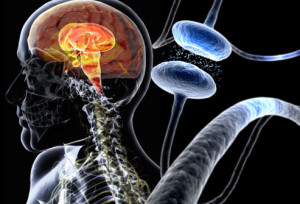Parkinson’s disease, a neurodegenerative brain disorder, progresses slowly in most of the people. A neurotransmitter- dopamine production will slow down in the brain and hence make the Condition fatal. As dopamine level decreases, the person’s ability to regulate body movements and emotions decreases. Dopamine is a chemical that mediates in transferring messages between the substantia nigra (particular area of the brain where neurons concentrate) and other parts of the brain to control human body. Dopamine helps human to have smooth, coordinated muscle movements. The symptoms can be observed when dopamine producing cells are damaged for about 60-80%. This process of impairment of brain cells is called neurodegeneration and its disease as neurodegenerative disease.
Neurodegenerative disorder – Early signs: Tremor, bradykinesia, rigid muscles, impaired posture and balance, loss of automatic movements, speech changes, writing changes.
In fact, there is no accurate medication for this disease. But some medicines can manage the problems with walking, movement and tremor.
There are many things that can be followed to lead a quality life with Parkinson’s disease, such as
• Taking a healthy diet.
• Navigating activities of daily living like grooming and sleeping.
• Making life easier and safer at home.
Parkinson’s disease is a common neurodegenerative illness. Combinations of genetic and environmental factors are likely to be important in producing abnormal protein aggregation within select groups of neurons that leads to cell dysfunction and later to death. As diagnosis remains as a clinical trial, there is a need for high index of suspicion to exclude other causes of Parkinsonism. A large number of agents (amantadine and anti cholinergics) together with surgical interventions are now available to treat early and later stages of Parkinson’s disease. Currently more concern is given to the diagnosis and treatment of non-motor complications in Parkinson’s disease. Future developments in Parkinson’s disease are likely to focus on the concept of disease modifying drugs that offer neuroprotection.

